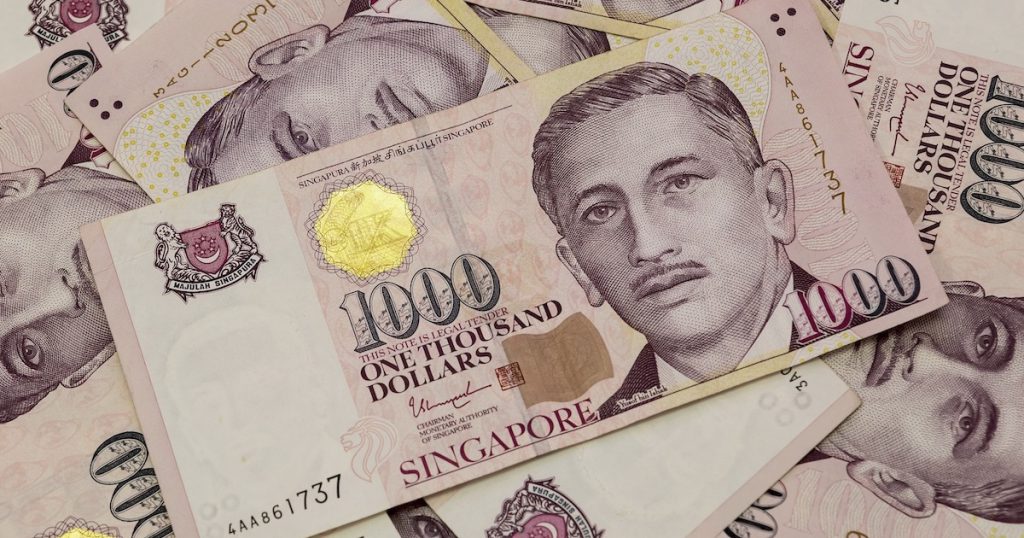Disclaimer: Opinions expressed below belong solely to the author
Here’s something you don’t read every day — net worth (assets minus liabilities) of all households in Singapore reached S$2.46 trillion in the first quarter of 2022, and was S$444 billion higher than in the first quarter of 2020, when Covid-19 forced the country into isolation.

To wrap your head around the figure, just consider that it is larger than S$403 billion — what the entire portfolio of Temasek Holdings is worth right now — and it was earned in just two years.
However, before you start wondering where your share of the cake is, I have to, sadly, emphasise that it isn’t exactly something that most people are able to cash out. In fact, most will probably not even notice the change in their pockets (though their families may at some point in the future).
Show me the money
So, where is all of this wealth, most of which we can’t even see?
Official data divides it between financial and residential property assets, which total close to S$2.8 trillion against liabilities of just S$360 billion.

Almost half of the total increase in value — or S$205 billion to be exact — comes from appreciating residential properties.
In fact, as you can see in the chart below, it is the first time that public housing has demonstrably increased in value since the little bump in 2013, which followed the appreciation after the crisis of 2008/9.

Those news reports of S$1 million HDB apartments are only going to grow more common but it is, of course, a double-edged sword.
Those who bought theirs before the pandemic can certainly be happy they don’t have to shell out more for their new home, although growing selling prices also mean growing buying prices. As a result, as long as you simply move from one place to another, appreciating prices largely cancel each other out.
You may be wealthier on paper, but that doesn’t mean you have more money to spend.
Paradoxically, perhaps, the best-off are those who bought their real estate using borrowed cash, since inflation in asset prices (and overall high inflation in the economy) is eroding the value of their liabilities to the bank. They get the best of both worlds — not having had to put up their own cash for the purchase, and are now only having to pay a relatively lower amount than when they applied for the mortgage..
Of course, those who are in the market for their first apartments are feeling the pinch, especially in the private market, where prices have long been outpacing HDB apartments.
Someone’s gain is often somebody else’s loss. Timing is everything, after all.

The second category covers financial assets, and here, Singaporeans have exhibited prudence expected of them during a major crisis.
Savings have increased by a whopping S$60 billion, value of life insurance surged by S$50 billion, and CPF added another S$80 billion. Those less risk-averse enjoyed riding the wave of surging stock markets, which elevated their shares and funds they have invested in adding another S$84 billion to their wealth.
It’s worth pointing out that while the stock market bubble was profitable to people around the world, Singaporeans still did well overall, outpacing Americans 22 per cent to 13 per cent in net worth increase between 2020 and Q1 of 2022 (data for other countries and comparable periods isn’t in yet).
That’s why besides million-dollar price tags on the best HDB apartments, you may want to get used to record S$100,000+ COE auctions, as it is evident more people are willing to splurge on a status symbol that owning a car is in Singapore.

It’s now much less about genuine need (if you need to travel by car, using ride-hailing apps will work out cheaper than owning one) and more about showing that you can pay the high price tag for the privilege. And it’s clear that many have navigated the stormy waters of the pandemic rather well.
Slow and steady wins the race
What’s really impressive is that all of these gains came at a price of just S$25 billion more in liabilities, which now account for a mere S$360 billion against S$2,780 billion in assets.

But it also shows that in the era of hyped up get-rich-quick “investments” like hundreds of cryptocurrencies, there is still plenty of value to be found in good old, stable categories — saving money to buy properties, and invest steadily in a diversified portfolio of equities.
The riskiest investments in listed shares amount only to around $105 billion of the total household assets.
And while it means that most people won’t be able to directly cash out on the newly gained wealth, it also gives their families a stronger footing in the uncertain future.
Featured Image Credit: Alamy










